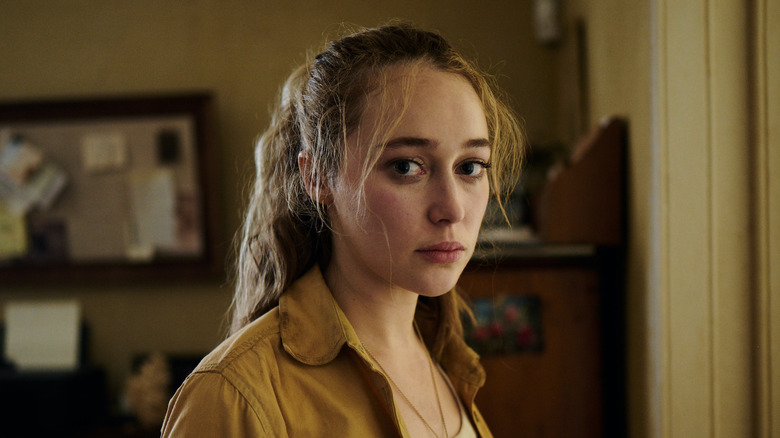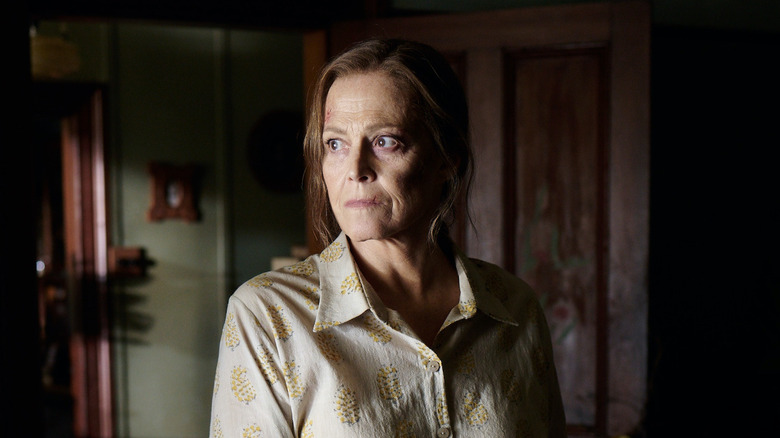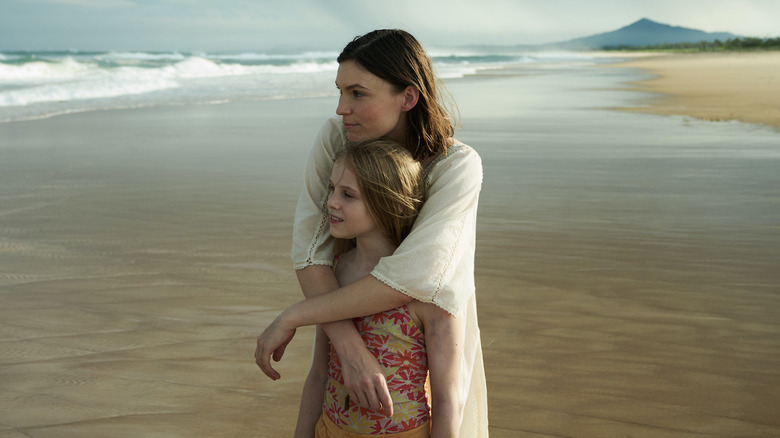The Lost Flowers Of Alice Hart Review: Lies, Abuse, And Bad Storytelling Abound In This Story Of Woe
- The show sure is pretty to look at
- The characters don't make a lot of sense
- There are problems with the structure
- The series treats dogs like accessories
There are some shows that seem intriguing based purely on the premise. Take this show, based on Holly Ringland's book. The trailers make it look like an action-packed mystery of secrets and lies. The reality, unfortunately, is very different. Plodding, muddled, and featuring a major character who refuses to tell the truth for inexplicable reasons, "The Lost Flowers of Alice Hart" is tedious to watch.
The story starts in a small town in Australia, where 9-year-old Alice Hart (Alyla Browne) lives with her parents. While initially, things seem fine, the show soon reveals that Alice's father, Clem (Charlie Vickers), has been beating her and her mother, Agnes (Tilda Cobham-Hervey). Things escalate and Alice's parents die in a fire that leaves Alice badly hurt and in a coma. When she finally wakes up, she goes to stay with her estranged grandmother, June (Sigourney Weaver).
June runs a flower farm called Thornfield that takes in women who are trying to escape the violent men in their lives. Alice has an idyllic childhood growing up amongst them, but she can't stop her grandmother from lying to her. When she's 24, Alice (Alycia Debnam-Carey) discovers a truth so upsetting she takes off.
She lands in a place called Agnes Bluff, where she finds her place among a group of park rangers and meets Dylan (Sebastian Zurita), a good-looking guy who loves her. But their relationship deteriorates and he eventually beats her just for hugging another man. Alice calls home to get away, but June takes her to the home of Sally Morgan (Asher Keddie), where she meets her 14-year-old brother, Charlie (Jeremy Blewitt), whose existence Alice knew nothing about. Alice bonds with Charlie and eventually, after her grandmother dies, goes back to Thornfield and mourns her death.
While the story is peppered with metaphors regarding the meaning of various flowers, it doesn't amount to much. Instead, the series focuses on Alice's suffering, particularly her grandmother's lies and the beatings she receives at multiple stages of her life, making this a difficult story to sit through. But it's not just because the lead character is repeatedly victimized — it's also hard to sit through because of the way the story is told for TV.
The characters have poorly drawn inner lives
"The Lost Flowers of Alice Hart" may have been able to shed light on the interior lives of these characters as a novel, but as a TV show, the thoughts of the characters are sadly obscured from us. We're left with characters whose actions don't make much sense, particularly Weaver's June.
From the moment we meet her, we know something's off about June. She's determined not to bring Alice home, allowing Sally to adopt her, but after one positive interaction she changes her mind. Then, from the moment she brings Alice home she lies to her. She tells Alice that her mother never lived there, when there's evidence everywhere that she did. She lies to her about her brother dying shortly after birth. She gets Alice's boyfriend deported in order to keep them from marrying. And she doesn't tell Alice about the fact that she's dying. Plus, she hides her lies by intercepting letters and replying to them as Alice, asking her brother and boyfriend not to contact her. If we could understand June's motives better maybe this all could have been dramatic, but as it stands, June mostly just comes across as a controlling shrew. While you get to understand some of what June has suffered through as the show goes on, it doesn't make up for her numerous lies.
Then there's Alice herself, who seems to mostly go from sad situation to sad situation. While she has happy moments, these are fleeting. She spends most of her time either crying, fainting, or cowering in fear as both a child and an adult. The only other characters who are given even this level of depth are Sally (who has some secrets of her own, although these are more understandable) and Twig (Leah Purcell), who's mostly defined by the two children who were taken from her and by her relationship with June. Most everyone else is just a cipher.
Problems with the filmmaking
These story issues aren't helped by problems with the filmmaking. The series is told in a linear fashion, but this leaves the narrative struggling to highlight the echoes between Alice's childhood and adult life. Though there's some attempt to do so, the flashbacks are fleeting and don't have much heft. Even the events that are told mostly through flashbacks are shown in such brief scenes that the viewer wonders if there was more to the story.
Meanwhile, other things are hidden and told to us later, as if the subterfuge of June is backed up by the subterfuge of the filmmaking. All seven episodes of the show were directed by Glendyn Ivin, who revisits particular images over and over, but without more context, they don't have nearly the weight he seems to think they do.
Also, this may be a particular issue for me, but I feel it's worth mentioning: The series has a strange relationship with dogs. Though Alice and June both have dogs, they're more an accessory than a member of the family. Young Alice's dog is forgotten as soon as the fire takes out Alice's parents, and 24-year-old Alice's dog is shown at various points, but is forgotten at key moments. It seems the people who made the show want dogs around when it's convenient but not enough to pay them any mind when it's not. It's sloppy filmmaking and alienated me further from the characters.
"The Lost Flowers of Alice Hart" has good intentions but can't follow through on them. Even the time period is confusing, relying as it does on a transition from paper letters to emails and smartphones. In the end, it's a pretty but shallow attempt at a story that may have meant more on the page.
The first three episodes of "The Lost Flowers of Alice Hart" premiere on August 4 on Prime Video, with new episodes premiering weekly until September 1.
This piece was written during the 2023 WGA and SAG-AFTRA strikes. Without the labor of the writers and actors currently on strike, the series being reviewed here wouldn't exist.


